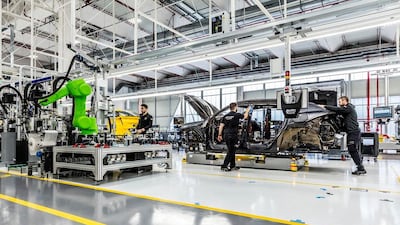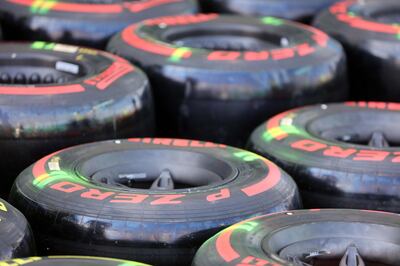The coronavirus has spread across the world and the automotive industry – already under intense pressure to meet tightening emission laws and invest heavily in electrification – has not been immune to the pandemic.
In January, global sales of new vehicles plunged to 6.2 million units, the lowest monthly tally since 2012, according to GlobalData. It's likely we haven't seen the worst of it yet, as several carmakers and suppliers are either halting production or scaling down operations to help prevent the spread of the virus.
At the time of writing, the disease has infected more than 218,000 people worldwide and caused about 8,800 deaths, with China and Italy the worst affected. It's no surprise the Chinese car market has been smashed, with new-car sales last month plummeting by an alarming 80 per cent year-on-year, according to China Passenger Car Association. On average, car sales fell to 7,100 units a day during the month, compared with 45,000 units per day in February last year.
Reports suggest passenger car sales in China crashed nearly 41 per cent through the first two months of the year – the largest decline in two decades. This is bad news not only for its home-grown manufacturers, but also for several imported brands, which have been offsetting shrinking sales in the vital, yet saturated, North American and European markets by pandering to the formerly huge appetite for new cars in China.
The other worrying factor for carmakers across the board is that about 80 per cent of global car production is dependent on parts sourced from China. With the nation's supply plants grinding to a halt, car production across the board is feeling the effects, especially as the modern manufacturing process operates on a "just-in-time" basis, whereby carmakers keep the minimum number of stockpiled parts in their inventories. Already, companies such as Jaguar-Land Rover say they've had to resort to flying parts in from China to meet production demand. Others, including Toyota and Peugeot-Citroen, say they expect to see supply chain disruption, which could halt – or at least heavily disrupt – their production output.
Italy's car industry has, unsurprisingly, been heavily affected. Fiat-Chrysler announced it would temporarily shut down three plants that produce Fiat and Alfa Romeo vehicles, as well as another plant that assembles vehicles such as the Jeep Renegade and Compass, and Fiat 500X. The company also says it will introduce a policy of "intensive sanitation of work and rest areas", a work-from-home programme for office employees and the slowing down of production lines to enable greater spacing of employees at their workstations.
In Sant'Agata Bolognese, Lamborghini has closed its factory until Wednesday. "This measure is an act of social responsibility and high sensibility towards our people, in the extraordinary situation in which we find ourselves right now in Italy and which is also evolving abroad due to the worldwide spread of coronavirus," the company's chairman and chief executive, Stefano Domenicali, says.
Ferrari has responded in similar fashion, halting production at its Maranello and Modena production facilities until Friday, March 27. A spokesman for the hallowed brand says the company was starting to experience disruption to its supply chain and the pause in production would allow suppliers to catch up with Ferrari's needs while also keeping employees safe from infection.
Meanwhile, Pirelli, best-known as a purveyor of tyres to an array of premium brands such as Ferrari, Lamborghini, Ferrari, Porsche, McLaren, BMW and Mercedes – and also as the official tyre supplier for all the Formula One teams – has slowed production at its Settimo Torinese plant in Turin after one of its employees tested positive for coronavirus. The company says it will operate with a "very limited number of employees" and is undergoing a complete sanitisation of the plant and work areas. "The supply to clients will continue with a suitable level of service drawing on available stock," Pirelli says.
In a similar vein, Italian brake manufacturer Brembo, which also has several blue-ribbon car brands (not to mention various Formula One teams) as clients, has announced it will close four of its plants from Monday to Sunday, March 23 to 29, to safeguard workers' health and safety.
The effects of coronavirus on car manufacturing and the supply chain are tangible and far-reaching, but what may be even more significant is the effect the pandemic has on the public psyche. With millions of people across the world converging on supermarkets in panic-buying sprees for what they consider essential supplies, they're likely to be less inclined to commit to a sizeable outlay on a new car.
With many financial analysts pointing to the prospect of an economic recession – sparked by coronavirus and vastly diminished oil prices – a penny-pinching mindset among consumers is the likely outcome.
The other challenge for carmakers is to come up with a strategy for rolling out new models waiting in the wings. Many brands invested heavily in having a presence at the Geneva Motor Show this month, but the event's late cancellation forced them to dismantle their stands and turn around trucks loaded with show-bound cars. It's another nail in the coffin for motor shows, which were already languishing, as virtual reveals of new models – live-streamed across the world – are likely to become the new normal.
The motorsport scene is in similar disarray, with the Australian Grand Prix, which was scheduled to take place last Sunday, called off at the 11th hour.

The latest communication from Formula One and the sport's governing body, the Federation Internationale de l'Automobile, is that races in China, Bahrain and Vietnam are postponed indefinitely and the F1 season is expected to start in May, pending further reviews.
The F1 fiasco aptly encapsulates the dilemma the car industry faces as it struggles to find solutions to challenges on many fronts, with coronavirus merely the latest problem it must contend with. It's now pretty much a case of "make it up as you go along" for carmakers and suppliers as there's still no clear indication of how things – notably the spread of Covid-19 and state of the global economy – will unfold over the coming months.
It may well lead to the creation of a whole new business model for the car industry.


